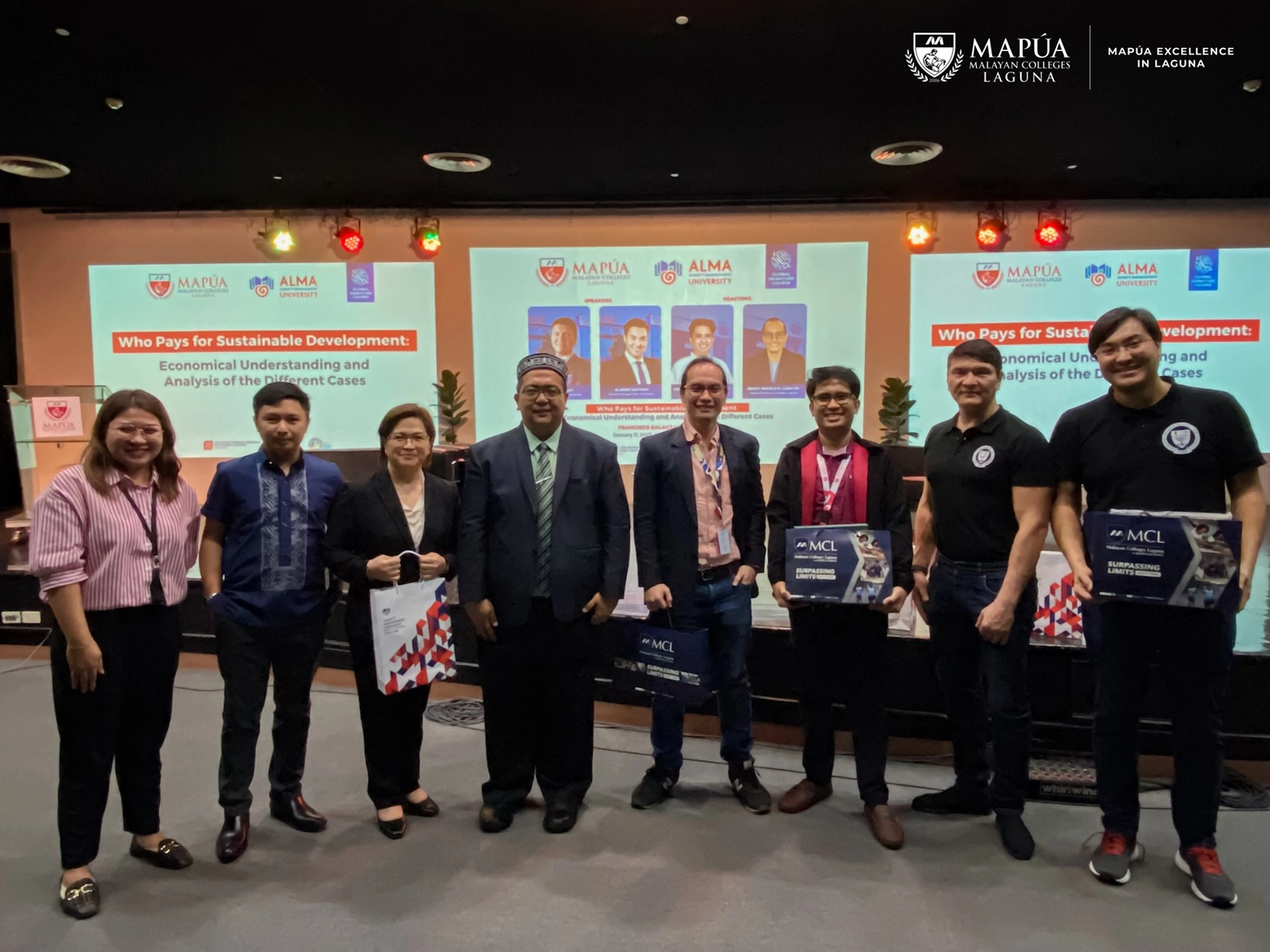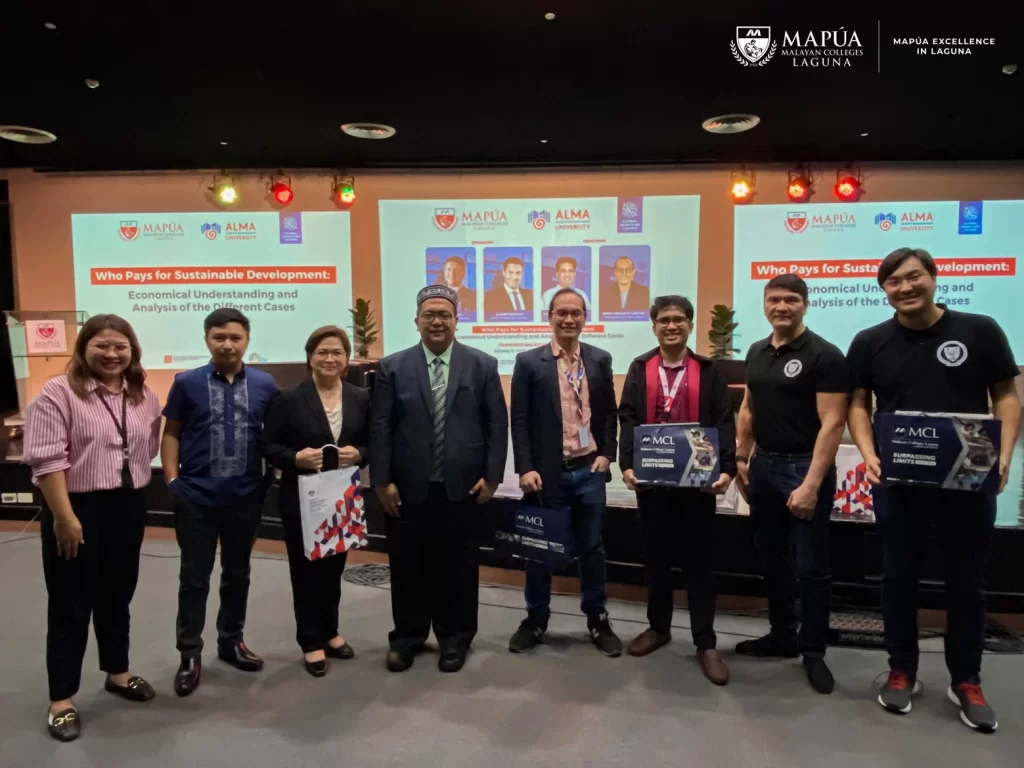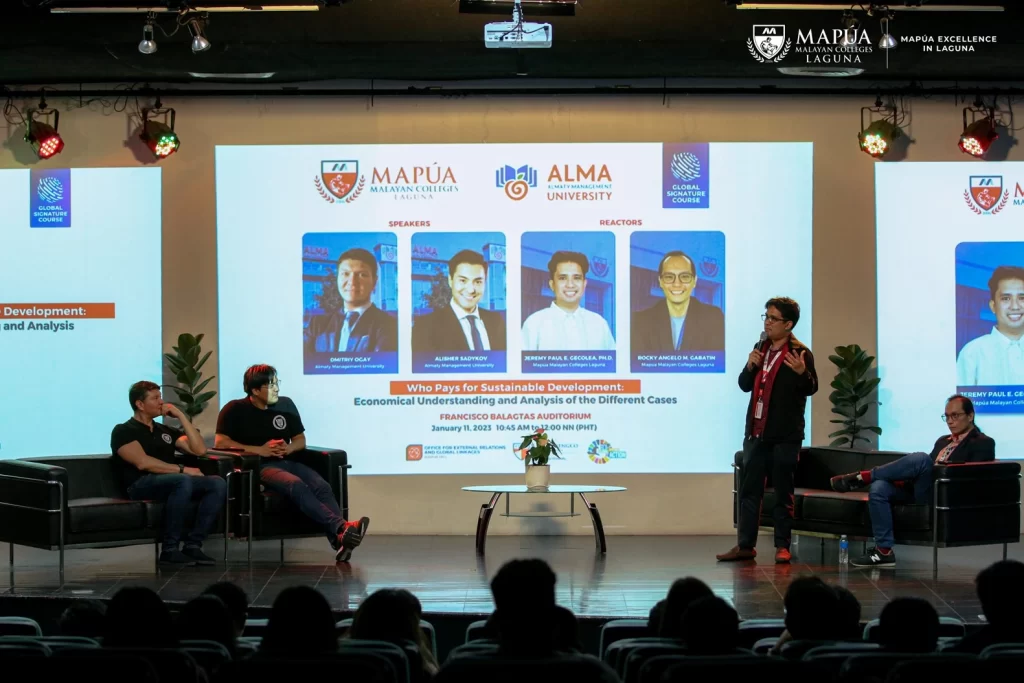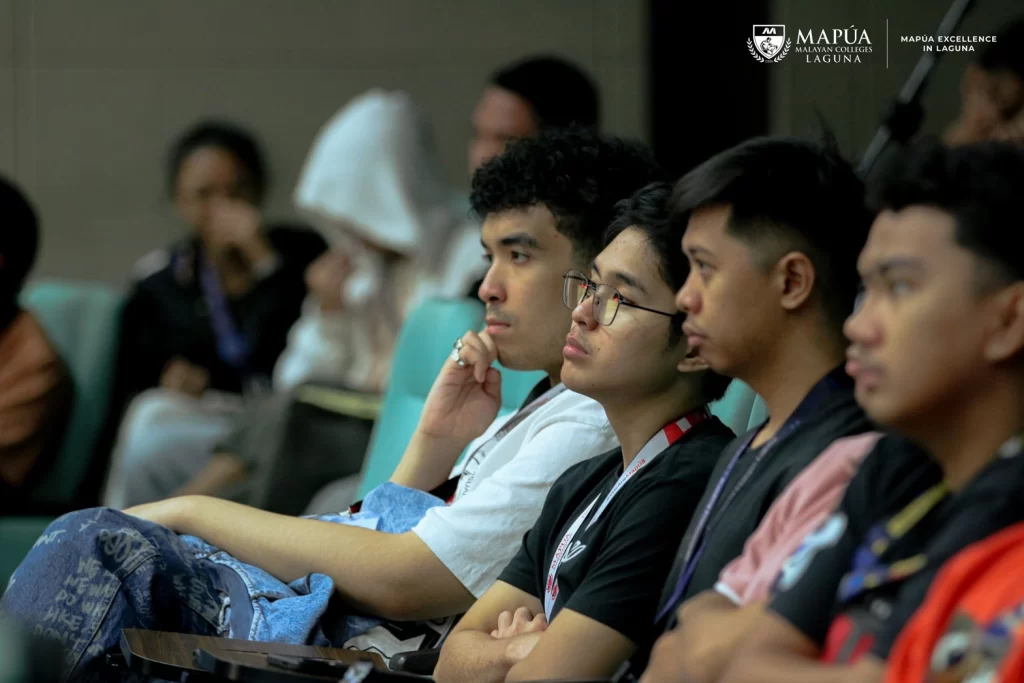Mapúa MCL’s Global Signature Course Explores the Economics Behind Sustainable Development
By: Zoe Grace Buergo
Mapúa Malayan Colleges Laguna (Mapúa MCL) began the new year with a highly successful Global Signature Course on January 11, 2024, titled “Who Pays for Sustainable Development: Economical Understanding and Analysis of Different Cases.” The event proved to be an engaging and insightful platform for discussing the economic aspects of sustainable development, which featured esteemed panel speakers from Almaty Management University (ALMA University), Kazakhstan, and two reactors from E.T. Yuchengco College of Business (ETYCB).
The event commenced with an opening address by Prof. Maria Rhodora Austria, the Dean of ETYCB. Prof. Austria emphasized the importance of economic implications of the sustainable development, which set the stage for the thought-provoking discussions that followed.
The panel speakers from ALMA University, Kazakhstan, brought a wealth of knowledge and expertise to the event. Prof. Alisher Sadykov, distinguished sustainability advocate, researcher, and lecturer at ALMA University, gave a compelling talk about the opportunities and problems that come with sustainable development in their nation and other parts of Asia. Prof. Sadykov provided light on the global sustainable investing assets and the different approaches used by various nations and sectors of the economy to fund sustainable projects.
Prof. Dmitriy Ogay, a renowned researcher and lecturer at ALMA University since 2005, joined Prof. Sadykov in discussing the research findings on the economic impact of sustainable development policies. Prof. Ogay offered insightful advice on how to practically implement sustainable practices in a developing economy.
Following the panel presentations, two reactors from Mapúa MCL, Prof. Jeremy Paul E. Gecolea, Ph.D., and Prof. Rocky Angelo M. Gabatin, provided their perspectives on the topics discussed. Both panel reactors underlined the efforts made by the Philippine government to fulfill the Sustainable Development Goals and the significance of community involvement and grassroots movements in bringing about long-lasting change.
The occasion created a dialogue-based atmosphere that enabled ETYCB students to actively engage in the conversations. Through the Q&A session, students were able to ask questions and learn more about the economic side of sustainable development.
The successful Global Signature Course served as a platform for knowledge sharing and critical analysis of sustainable development from an economic standpoint. Interesting insights into the opportunities, risks, and duties related to funding sustainable projects were provided by the thought-provoking talks and presentations.
Mapúa MCL remains committed to providing a quality education and environment that equips students with the knowledge and skills necessary to address pressing global issues. The Global Signature Course serves as a catalyst for meaningful dialogue and inspires future leaders to actively contribute to society’s solutions for a more sustainable world.





